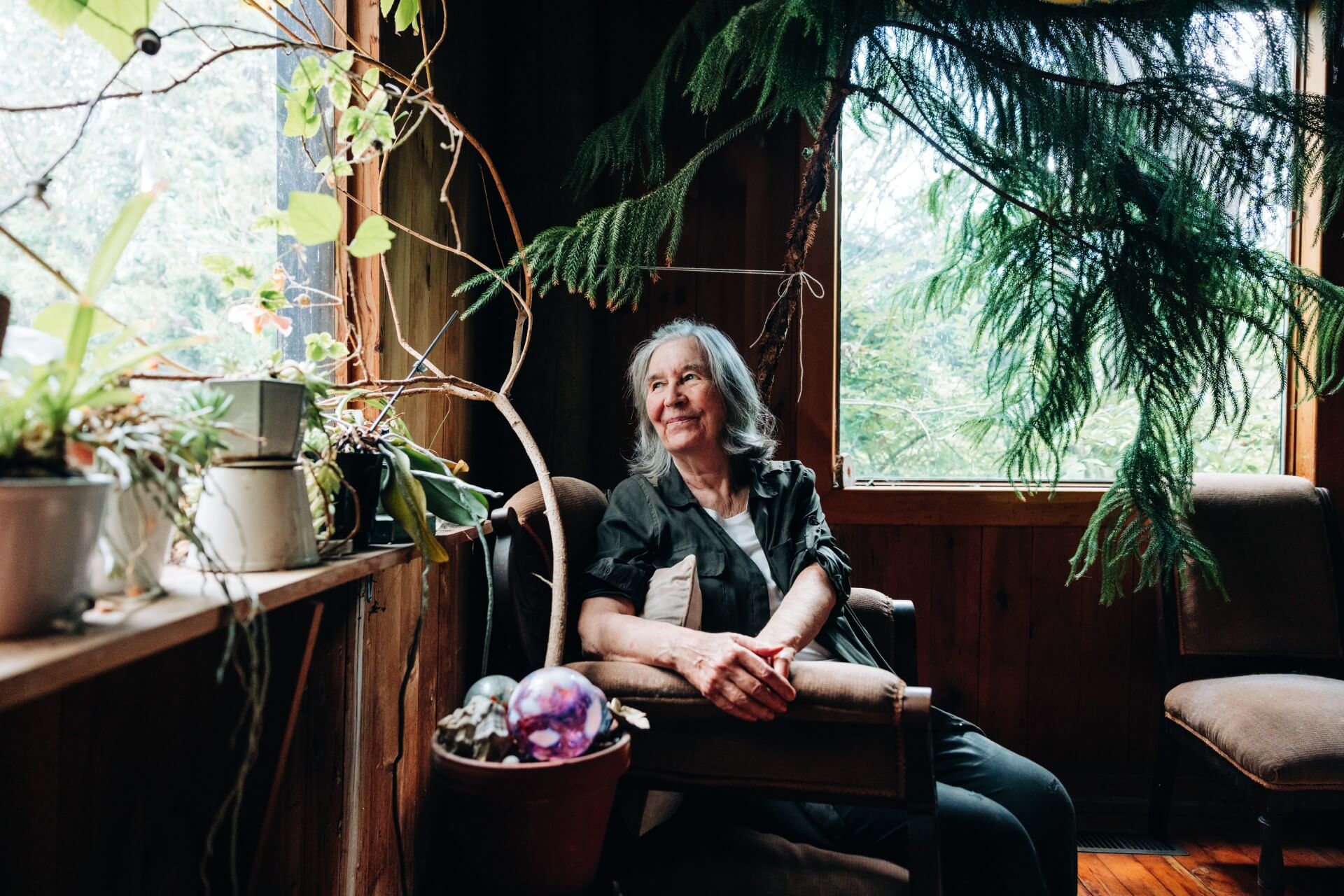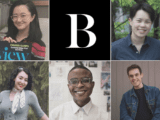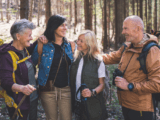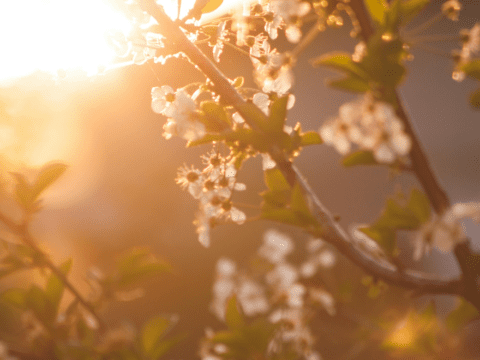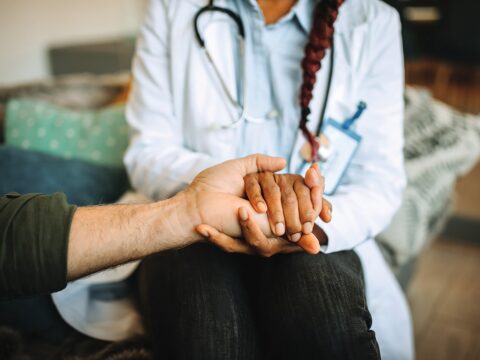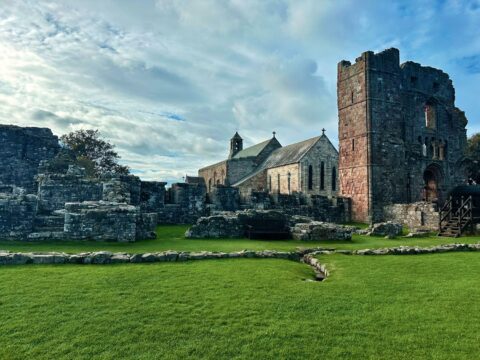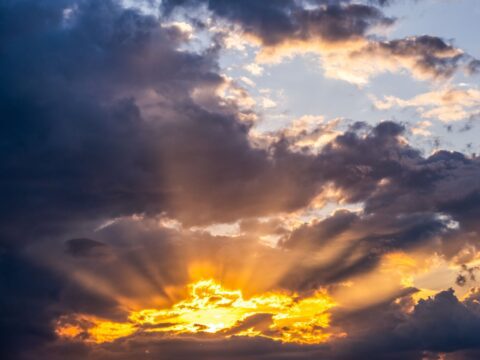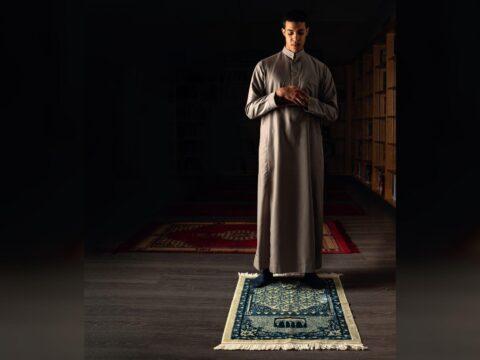Diana Beresford-Kroeger is a botanist, biochemist, writer and mystic. Raised in Ireland, she spent her youth immersed in Celtic spirituality and the medieval Irish Brehon laws, which are communal ways of being that encourage deep connection between a person and the land.
Now 80, Beresford-Kroeger has spent a lifetime breaking down the silos between science and spirituality. Her study of trees has expanded our understanding of their ancient knowledge and ability to communicate. In her latest essay collection, Our Green Heart: The Soul and Science of Forests, she outlines her “bioplan” — rooted in nature’s connectivity — to ease the climate crisis.
You may unsubscribe from any of our newsletters at any time.
There is a form of divinity in the forests that applies to our whole planet.
Christopher White sat down with Beresford-Kroeger at her home near Ottawa to discuss the souls of trees, what won’t help climate change and how to hope for the next generation.
Christopher White: In your book, you talk about the different elements of the climate crisis. How are we going to experience these elements?
Diana Beresford-Kroeger: None of us are going to escape the consequences of global heating. For the first time, Canada is going to experience a wall of hurricanes and a catastrophe of disasters. Our snowflakes are super hydrated and are now so large that branches can no longer support their combined weight. They break off and fall to the ground, which in turn provides fuel for forest fires the next summer.
With global heating, we are seeing icecaps and glaciers melt all this extra fresh water is slowing down the great ocean currents that are vital to our civilization’s survival.
Another example is the collapse of insect populations: globally we have lost an estimated 73 percent of all insects. This has huge implications for life on this planet and our ability to grow food. We continue to spray fields with toxins that we know cause genetic damage and are in fact against the law, but the laws are not enforced.
One thing people don’t realize is that all the explosions in Gaza and the Ukraine cause a plume of chemicals that goes up into the atmosphere. These chemicals carry electricity, which in turn attract fungicides, pesticides and herbicides, which circulate around the planet and come down as rain, so we are literally eating the war chemicals. The use of chemicals is changing our biology.
CW: Part of the title of your book is The Soul and Science of Forests. Why did you include the word “soul” in your title?
DBK: It’s not just a climate crisis that we are experiencing. It’s also a spiritual crisis, which is why I have woven in references to the divine. There are three parts to us: body, mind and soul. We look after our bodies and our minds, but all our souls are in a state of neglect.
Capitalism is killing us, and money is a sickness in itself. We have endowed people like [Amazon CEO] Jeff Bezos with godlike status. What we think we need in terms of material goods is so destructive. What we truly need is compassion, love, empathy and kindness. Our universe has a deeply spiritual dimension to it.
We have just discovered, through string theory, that both photons and electrons can exist simultaneously in two places at once. For the very first time, we have an observed and measured evidence of a phenomena that should be impossible. But when the impossible becomes reality, it opens us to new understandings of the universe and life itself.
I was raised with a deep understanding of Celtic spirituality, which sees the spiritual in all of nature, and with a knowledge of the old Irish Brehon laws, which focus on the interconnectedness of everything.
I have had some profoundly spiritual experiences in Ireland, at a place where monks have been praying every day since the fifth century, and in Japan, with a Shinto priest on the top of Mount Kurama, that deeply affected me. We are connected to the spiritual world as much as we are to the physical one.
We can find the soul and the divine in the music and math of the universe.
CW: Where do we find the “soul” of forests?
DBK: Trees are remarkable; they are full of medicines for us. The aerosols from the white pine boost our immune systems and can have anti-cancer effects. Nobody has solved the question of where trees actually come from in our evolution. They are incredibly complex and live their lives on the quantum level. They behave like computers and have a type of brain — and actually defy the laws of gravity and physics by running water in their xylem [their vascular tissue] uphill, and no one knows how they do it.
For all of us, there is a form of divinity in the forests that applies to our whole planet, that in the planet is a knowledge of self that creates a unity. We can find the soul and the divine in the music and mathematics of the universe.
CW: I’m a grandparent and very worried about my grandchildren’s future. What advice do you have for parents today?
DBK: I have tremendous hope for this coming generation. They are very clever, and they will look backwards with total clarity about what we have done and what is at stake.
I was at an event put on by the Imagination Foundation in Fort Worth, Texas, in May 2012. This event was for children, and the space was filled. I illustrated cli- mate change using a large ball with a volunteer on top. We then started putting blankets on him, until he said, “Hey, it’s getting hot.” That, I explained, is what CO2 in the atmosphere does: it’s a blanket that warms our planet. All of them were worried about climate change, and when the invited politicians and TV crews arrived, the children wouldn’t let them in, because they said our time together was too important for politicians.
My advice to parents and to all adults is to mentor children, teach them what is happening, but also what they can do — start small, but act. Given the levels of toxic chemicals all around us, I would encourage parents to feed their children with as much organic food as they can.
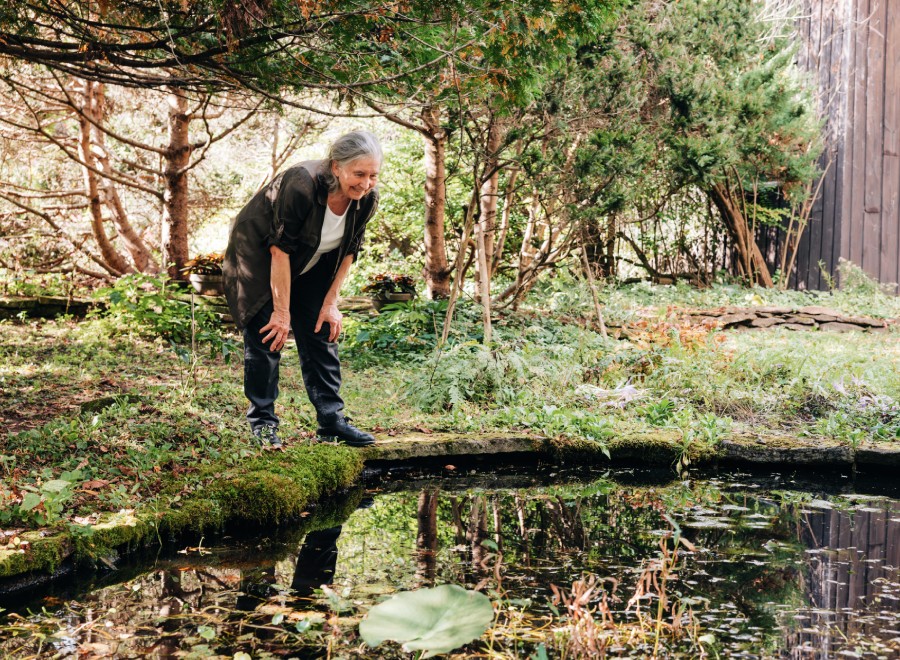
CW: In your book, you are very critical of geoengineering — large-scale interventions in Earth systems — to address the climate crisis. Why is that?
DBK: One geoengineer asked me about filling the ocean with iron filings to absorb the carbon. That would lead to a massive die- off of fish as it impacted their environment.
Geoengineers fail to appreciate the interconnected systems that we all depend on for life. They, along with the wealthy, are insu- lated from the consequences of their own actions.
The Irish Brehon laws are not based on ownership but on what serves both nature and humanity. There is a requirement of reparation for harm done both morally and financially.
If we lived under that system of laws, as opposed to laws based on ownership, the scientists would never start these schemes, knowing the potential cost they would bear if things went wrong.
More on Broadview:
CW: You call your approach to reversing the climate crisis the “bioplan.” What exactly is in this plan?
DBK: It’s very simple: protect existing forests and plant trees — lots and lots of trees. But the right trees in the right place, not the wrong tree in the wrong place.
In North America, we have the choice of 15 different native species such as white pine, oaks, chestnut and hickory that can make a major difference to the climate crisis.
We need to plant one tree per person per year for the next six years. That’s 50 billion trees across the globe. That will reduce the carbon in the atmosphere from around 412 parts per million to the mid 300s over time.
We can plant mini urban forests that can clean the air and cool our cities. We can get farmers to restore hedgerows and forested fences for wildlife and get people into the parks to plant and care for young trees.
Oaks are a particularly good choice as they support a wide range of wildlife and can live for 1,000 years.
CW: Do you have any other wisdom for us?
DBK: We need to pray and hope. We need a wall of prayer around us right now from all religions. It’s going to get tough as the pillars of our society collapse around us.
And we will need all the love and friendship that we can create. Look for hope everywhere and anywhere you go, because hope is waiting for you.
***
Christopher White is a United Church minister who lives in Hamilton.
This interview has been condensed and edited for clarity. It first appeared in Broadview’s March 2025 issue with the title “Planting Hope.”

